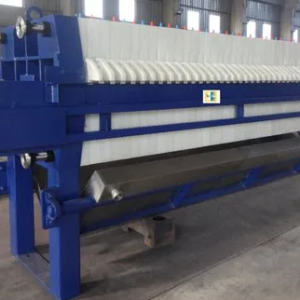Understanding Industrial Filtration
Introduction:
Industrial filtration is a critical process used in various industries to remove impurities and contaminants from liquids and gases. Whether it’s ensuring the purity of drinking water, maintaining the quality of pharmaceutical products, or optimizing manufacturing processes, filtration plays a crucial role. This page provides an overview of different types of industrial filtration, their applications, common uses, and key selection parameters.
Types of Filtration:
Type of Filtration
Applications
Common Uses
Selection Parameters
1. Mechanical Filtration
– Water treatment- Automotive industry- Food and beverage production
– Removing suspended solids- Engine air filtration- Clarifying juices and syrups
– Pore size- Filtration efficiency- Flow rate
2. Reverse Osmosis
– Desalination- Pharmaceutical industry- Electronics manufacturing
– Producing freshwater from seawater- Purifying pharmaceuticals- Electronics cleaning
– Membrane material- Pressure and temperature- Feedwater quality
3. Air Filtration
– HVAC systems- Cleanrooms- Automotive painting
– Improving indoor air quality- Maintaining sterile environments- Removing paint particles
– Filter type (HEPA, MERV, etc.)- Filtration efficiency- Airflow rate
4. Chemical Filtration
– Chemical processing- Oil and gas industry- Biotechnology
– Separating chemical compounds- Removing contaminants from hydrocarbons- Bioprocessing
– Chemical compatibility- Filtration media- Chemical concentration
5. Bag Filtration
– Industrial manufacturing- Agriculture- Wastewater treatment
– Collecting dust and particles- Filtering irrigation water- Removing solids from wastewater
– Bag material (polypropylene, polyester, etc.)- Micron rating- Flow capacity
6. Membrane Filtration
– Dairy industry- Biopharmaceuticals- Water purification
– Separating proteins in milk- Sterilizing pharmaceuticals- Producing ultrapure water
– Membrane material (polymer, ceramic, etc.)- Pore size- Pressure and temperature
Selection Parameters:
Pore Size: The size of particles or contaminants you need to remove will dictate the appropriate filtration technology and the required pore size.
Filtration Efficiency: The effectiveness of the filtration system in removing impurities, often measured in terms of percentage efficiency.
Flow Rate: The rate at which the liquid or gas needs to be processed, which can influence the size and capacity of the filtration system.
Membrane Material (if applicable): In membrane filtration, the choice of material can impact chemical compatibility and durability.
Chemical Compatibility: Ensure that the filtration system materials are compatible with the substances being processed to prevent corrosion or contamination.
Pressure and Temperature: Operating conditions, including pressure and temperature, are critical for system performance and longevity.
By understanding the different types of industrial filtration, their applications, common uses, and key selection parameters, you can make informed decisions when choosing the right filtration solution for your specific needs. Whether it’s maintaining product quality or ensuring environmental compliance, industrial filtration is an essential tool for various industries.
Types of Filtration:
Type of Filtration
Applications
Common Uses
Selection Parameters
1. Mechanical Filtration
– Water treatment- Automotive industry- Food and beverage production
– Removing suspended solids- Engine air filtration- Clarifying juices and syrups
– Pore size- Filtration efficiency- Flow rate
2. Reverse Osmosis
– Desalination- Pharmaceutical industry- Electronics manufacturing
– Producing freshwater from seawater- Purifying pharmaceuticals- Electronics cleaning
– Membrane material- Pressure and temperature- Feedwater quality
3. Air Filtration
– HVAC systems- Cleanrooms- Automotive painting
– Improving indoor air quality- Maintaining sterile environments- Removing paint particles
– Filter type (HEPA, MERV, etc.)- Filtration efficiency- Airflow rate
4. Chemical Filtration
– Chemical processing- Oil and gas industry- Biotechnology
– Separating chemical compounds- Removing contaminants from hydrocarbons- Bioprocessing
– Chemical compatibility- Filtration media- Chemical concentration
5. Bag Filtration
– Industrial manufacturing- Agriculture- Wastewater treatment
– Collecting dust and particles- Filtering irrigation water- Removing solids from wastewater
– Bag material (polypropylene, polyester, etc.)- Micron rating- Flow capacity
6. Membrane Filtration
– Dairy industry- Biopharmaceuticals- Water purification
– Separating proteins in milk- Sterilizing pharmaceuticals- Producing ultrapure water
– Membrane material (polymer, ceramic, etc.)- Pore size- Pressure and temperature. d
Type of Filtration
Applications
Common Uses
Selection Parameters

